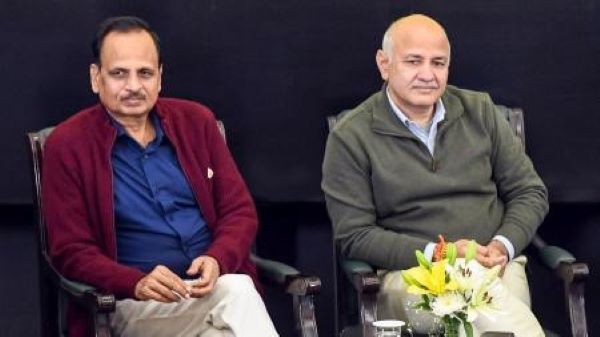 The Aam Aadmi Party (AAP) came to power in Punjab in 2022 with a massive mandate, promising clean governance, honesty, and a fresh alternative to the traditional political class. The people of Punjab, especially the youth, trusted the AAP leadership to bring an end to corruption, nepotism, and criminal elements in politics. However, recent developments have created serious doubts about whether the party is truly living up to those ideals.
The Aam Aadmi Party (AAP) came to power in Punjab in 2022 with a massive mandate, promising clean governance, honesty, and a fresh alternative to the traditional political class. The people of Punjab, especially the youth, trusted the AAP leadership to bring an end to corruption, nepotism, and criminal elements in politics. However, recent developments have created serious doubts about whether the party is truly living up to those ideals.
One of the most controversial aspects of AAP’s current political strategy is its continued promotion and glorification of Delhi leaders Manish Sisodia and Satyendar Jain—both of whom have been booked in serious corruption cases. These are not vague allegations or political mudslinging; FIRs have been registered by the Anti-Corruption Department, and both leaders have been arrested and investigated by central agencies. Despite this, they are still being hailed as heroes at party events in Punjab, their faces appear on posters and banners, and party workers often refer to them as “martyrs of truth.”
Manish Sisodia, the former Deputy Chief Minister of Delhi and a key figure in the AAP government, is accused in the alleged Delhi liquor policy scam. The case involves irregularities in the implementation of the Excise Policy 2021-22, where it is alleged that undue benefits were given to liquor license holders. The investigation has reached the stage where chargesheets have been filed, and several close aides have turned approvers. Yet, AAP continues to defend him blindly, with top leaders publicly calling the case a “political conspiracy.”
Similarly, Satyendar Jain, who was once the face of Delhi’s healthcare reforms, is under investigation for money laundering and possession of disproportionate assets. He was arrested in 2022 and spent months in judicial custody. During this period, shocking videos surfaced showing him receiving massages in jail, which added further embarrassment to the party. Despite the controversy, AAP never distanced itself from Jain and continues to portray him as an innocent and upright leader.
What is deeply troubling is that these individuals are not only being defended—they are being actively promoted in Punjab’s political scene. Senior Punjab leaders, including Chief Minister Bhagwant Mann, often refer to them in speeches as symbols of AAP’s governance model. Their images are used in party campaigns, and even in educational events, which sets a worrying precedent. This sends a confused and dangerous message to Punjab’s youth, who were expecting a political revolution based on values, not just slogans.
Young people in Punjab already face numerous challenges—rampant drug abuse, rising unemployment, lack of political role models, and growing frustration with the system. They looked up to AAP as a force of change, one that would not repeat the mistakes of the past. But when leaders with active corruption charges are celebrated instead of being sidelined or investigated thoroughly, it creates a sense of moral confusion. It teaches young minds that power matters more than ethics, and loyalty to a party is more important than integrity.
Moreover, this trend undermines the credibility of AAP in Punjab, which was built on the promise of zero tolerance for corruption. By defending and promoting tainted leaders, the party risks losing its moral high ground and alienating the very citizens who gave it a historic victory. Many supporters now question whether AAP is truly different or just another political party using emotional narratives to protect its powerful insiders.
It is time for AAP, especially its Punjab leadership, to reflect seriously on the direction it is taking. If the party wants to retain the trust of Punjab’s people and set an example for Indian politics, it must ensure that leaders under investigation are not promoted until they are cleared by the courts. Political accountability should not be sacrificed for convenience or image management.
The youth of Punjab are watching closely. They do not need false heroes or tainted role models. They need honest, clean, and visionary leaders who live by the principles they preach. If AAP fails to correct course, it may not only damage its image but also destroy the hope it once gave to an entire generation.